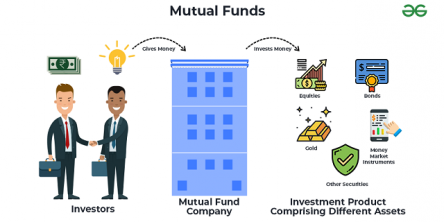Are Pay Squeezes in the UK Result of Brexit or Wrong Decisions by Government?

The UK, which was one of the powerful economies in the modern world, is witnessing fragile growth rates. Masses, in general, are experiencing pay squeezes; much of which stands in the shade of Brexit. The referendum, which led to Britain’s exit from EU group, has brought about devastating effects. Government statistics are indicating that pay growth rate is lagging behind, which has happened for the first time in the span of two and a half years. The growth rate has improved by meagre 2.1%, thereby pointing a feeble increase from July month of the year 2016. It clearly points to the fact that the UK’s economy is heading to the worst side.
The accusing game has just begun, and time is not far, when it would become quite pervasive and chilling. Britons are feeling the squeeze intensely as inflation is growing to a four-year high percent, to settle on a 2.9%. There is a clear show of incessantly rising cost of package holidays. As inflation continues to outpace the UK wage growth, the pay growth rate is on decline. Besides, the rising oil prices have given the way to pressure the inflation rate. The mounting prices of package holidays, is indicative of upward cost of travelling for Britons moving out of the country. The trouble is sensed by weak behaviour in pound.
The Office for National Statistics has pointed – increase in the food and electricity prices is one of the key factors, which is adding drastically to inflation rate. High expenditure is spent on essential commodities, which has affected the household spending excessively. The resultant is that consumer spending has gone sluggish with slow paced economic growth.
Who is to Blame?
Labour and the unions have already started to accuse the government of paying no heed to the troubles of workers after UK pay growth plummeted lower than inflation in early 2017 for in two-and-a-half years.
Resolution Foundation analysed, and found that the wages were still £16 a week lower than their 2008 peak, due to which several families are showing the strains. John McDonnell, the shadow chancellor, is not failing to blame “the Tories’ for complete breakdown and failing to improve living standards of families who are in employment.
There have been contradictory statements from the Liberal Democrats such as Vince Cable, who said that pay squeezes on living standards was result of lower pound after the Brexit vote. Theresa May on the other hand voiced that she will place a cap energy prices, and this is going to be a deflection from Conservative party’s customary pro-market posture.
How Employment and Unemployment Levels are showing?
The UK is growing above all the rules in the postwar era, where low employment and unemployment in 42 years has not encouraged stronger increase in the wage. The rate of unemployment within January and March fell unpredictably to 4.6%. Economists polled by Reuters have anticipated that rate would remain fairly stable on 4.7%. However, in these months, the people working have risen by 122,000, which have given the thrust to employment rate on recorded levels of 74.8%.
Bank of England’s Reason on Squeezed Wages
The Bank of England is closely narrowing on the reasons of wage squeezes. It has judged that owing to higher costs of imports for the fall in pound value, there has been significant pressure on prices of merchandise. The bank is also thoughtful here that in the event where wages increase, this could add to the current inflation rate. The Bank of England has alleviated on its earlier forecasts in context of unemployment rise, expecting it to on 4.7% for 2017, though this may affect the inflation rate. The Bank is anticipating wages to grow by almost 2% in 2017, with stronger outlook in 2018 and 2019.
UK’s ‘Cost of Living Crisis’ Amidst Poor Wage Growth
It is already out in the open that millions of workers are showing worst hit following the most excruciating pay squeezes in more than 40 years. There are two sides of the coin – While on the one side, inflation is rising to its four years high mark, on the other, average pay growth has gone sluggish to 1.7%.
Workers in the UK are facing “cost of living crisis” due to the poor wage growth. The number of people on unemployment benefit claimants has substantially increased by 19,400 in the July 2017, which was otherwise fewer than 793,000 in April, 2017.
Stephen Clarke, who is working in the role of economics analyst at the Resolution Foundation, was quick to make the opinion that Britain’s pay squeeze is far deeper than could be fathomed. Resolution Foundation proclaimed this squeeze to be the biggest fall, since 1978, much, much bigger than the squeeze, which happened from 2008 to 2014 financial crisis.
Sentiments in the UK’s Economy: Behaviour in Recent Months
Economic growth of the UK in the recent months has been shaky, slowing down gradually. It was better expected during second FY of 2016 has plummeted. Economists have predicted that due to rise in inflation rate and falling Sterling, there is considerable squeeze in household money generation and relatively quite depressed spending by customers.
Market Movements
Investors generally gauge movements in currency and bond markets to understand the overall economic projection of country’s economic situation. The UK government sells bonds through the Debt Management Office and borrows money for reducing the gap occurring between spending and receiving money.
The Verdict
The UK’s pay growth slowdown is contradicted by workers employed. In fact, the workers in regular employment are on a record high. These two statements do not find a discretionary relationship among each other. Individual has sufficient clues to believe - almost 32 million people are employed on regular work, which is 372,000 over a year ago, and overall this seems to highest total from the year 1971; the year when recording of facts and figures began.
Similar Articles
For many ambitious Australian graduates, the dream of attending an Ivy League institution or a world-renowned global university represents the pinnacle of academic and professional aspiration
International transfers are essential for SMEs operating across MENA and global markets, yet they carry risks that can disrupt operations severely.
Most bookkeeping mistakes aren’t dramatic. They don’t show up as obvious errors on day one. Instead, they surface slowly, as numbers that feel slightly off, reports that take longer to prepare, or fixes that keep coming back.
Most business owners set up their first business banking account without a second thought. They go with whatever bank they personally use, or whatever bank their accountant mentions - and done deal.
Outsourcing debt collection boosts recovery rates, ensures compliance, and preserves client relationships—freeing your team to focus on core business tasks.
Save money on home & business essentials with bulk wholesale! Discover tips, product categories, and deals to maximize your savings.
Loud budgeting has taken over social media, with people openly discussing spending habits, saving strategies, and financial struggles. While this trend encourages transparency, it also adds pressure to meet certain expectations
Securing your financial future has become a necessity in today's world, and investing in mutual funds is one of the most popular ways to grow your wealth over time. Managing your money and investing in potential funds has become convenient and seamless with the help of the right online platforms
Gone are the days when you had to carry a wallet full of money when traveling somewhere. Now, cashless travel has become a reality due to technological developments, making it easier for travelers to manage their cash when they’re out and about.









